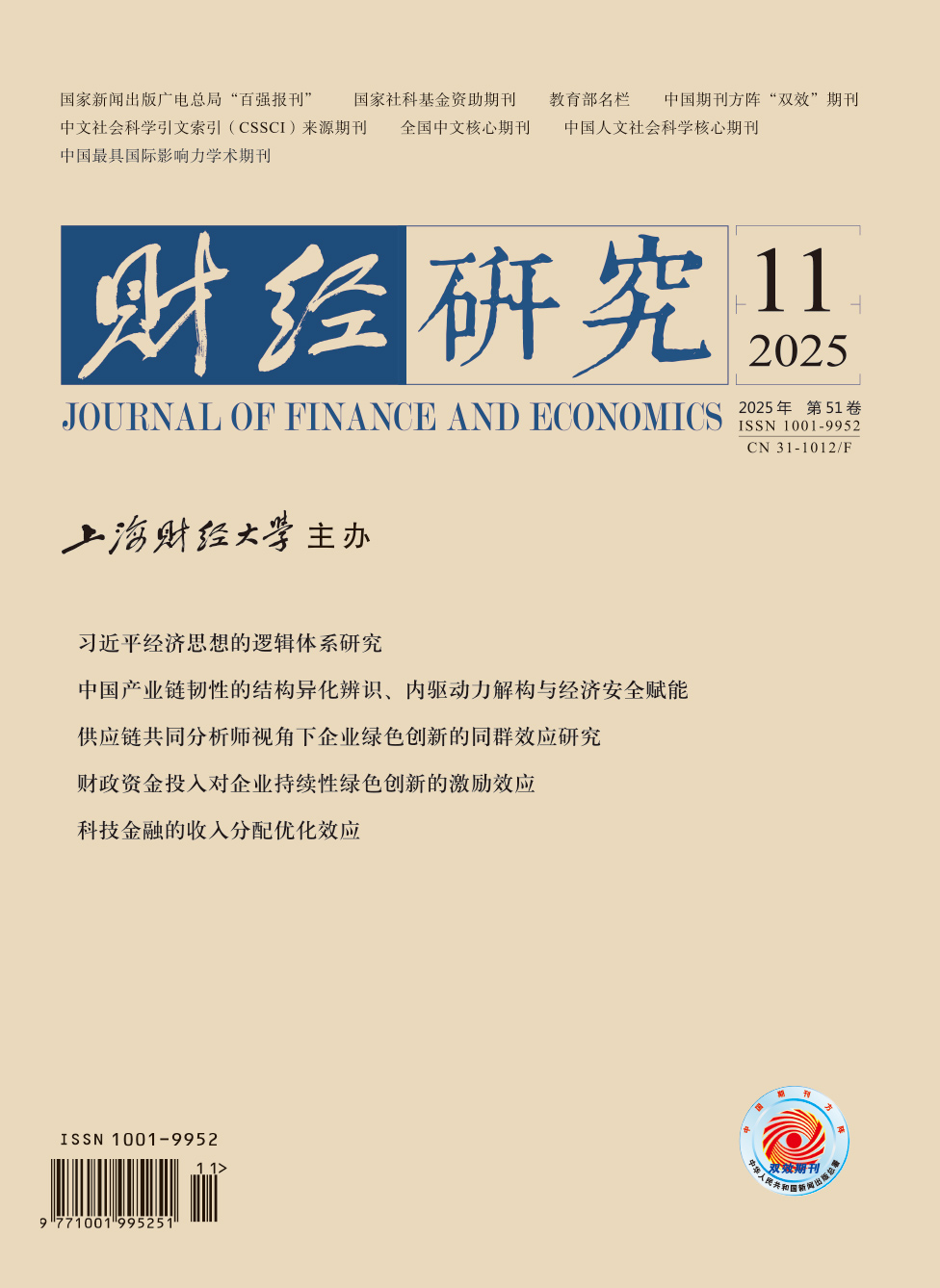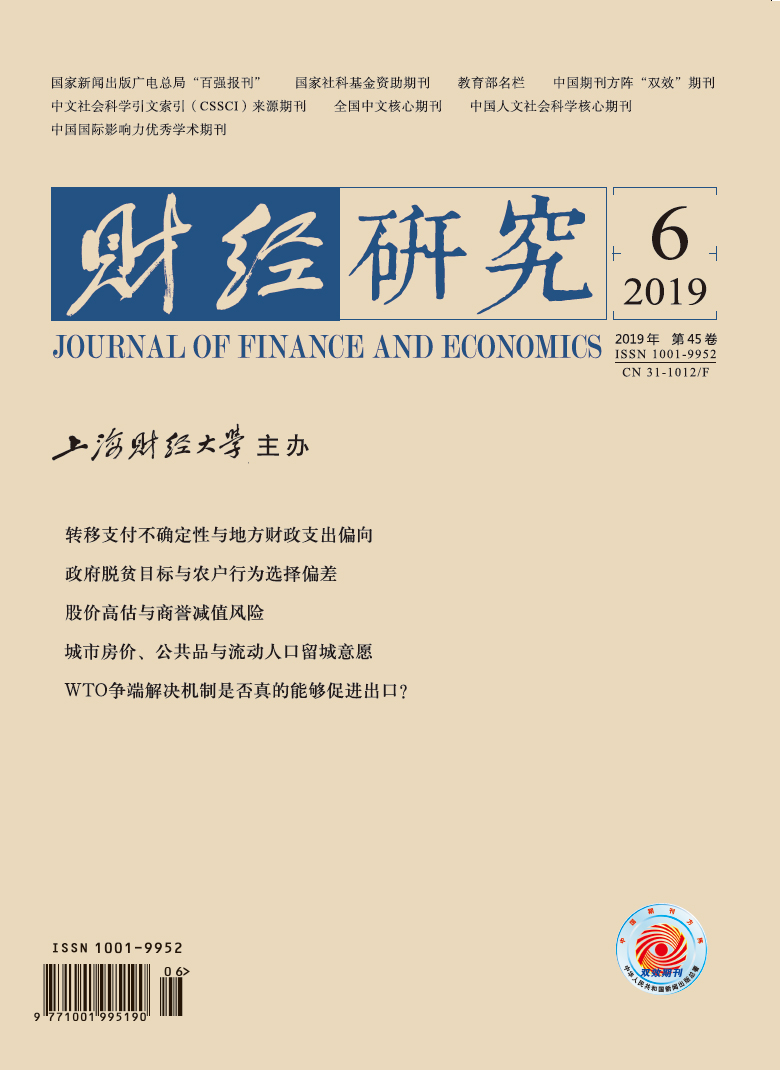As the " Jewel of the Crown” of the multilateral trading system, the WTO dispute settlement mechanism (DSM) has made great contribution to resolving trade disputes among WTO members. Although a considerable amount of literature in the field of international law has discussed the legal issues of the DSM, the economic efficacy of the DSM has not been paid sufficient attention. Facing the dilemma of economic globalization and the unilateral trade protectionism of the US, what role can the DSM play? Can its advocacy of trade liberalization at the legal level produce the actual export promotion effects on the complainant? What factors will affect the respondent’s enforcement of dispute rulings and thus affecting the complainant’s export benefits? These urgent practical problems endow the theoretical research with deeper significance. This paper focuses on the judicial arbitration value of the WTO DSM, and reveals the theoretical mechanism of WTO dispute rulings turning into the complainant’s export benefits. In addition, this paper uses the difference-in-differences and propensity score matching methods to solve the selection bias and endogenous problem of WTO dispute cases, and investigates whether WTO dispute rulings bring export promotion effects on the complainant. The empirical results show that the DSM can indeed bring export promotion effects through judicial arbitration, but such export promotion effects have the hysteretic nature. Furthermore, due to the heterogeneity of dispute cases and the characteristics of the countries involved, it brings different degrees of export promotion effects. From the perspective of the heterogeneity of dispute cases, if the category of products involved in the case is agricultural product and the winning rate of the complainant is high, the export promotion effects of WTO dispute rulings will be stronger. However, if the dispute measure involved in the case is anti-dumping or countervailing measure and the case enters the remedy proceeding due to insufficient enforcement of dispute rulings by the respondent, the export promotion effects of WTO dispute rulings will be weaker. From the perspective of the characteristics of the countries involved, the higher the trade retaliation capability of the complainant is, the stronger the export promotion effects of WTO dispute rulings will be. This paper provides some insights by demonstrating the economic efficacy of the DSM. Especially in the current background that the WTO is facing multiple challenges and the DSM is hampered, this paper emphasizes on the marvelous contribution of the DSM in promoting trade liberalization, and highlights the urgent practical significance in maintaining an effective DSM. This paper makes a contribution in the following aspects: First, it enriches relevant theories and assumptions by assuming the enforcement behavior of the respondent as an important mediating variable for the WTO dispute rulings to produce expected export promotion effects. Second, it empirically testifies the export promotion effects of WTO dispute rulings and further measures the non-equilibrium nature of export promotion effects caused by the heterogeneity of dispute cases and the characteristics of the countries involved. Through the above research, this paper expands the economic research of the DSM and provides empirical basis for testing the export promotion effects of WTO dispute rulings.
 / Journals / Journal of Finance and Economics
/ Journals / Journal of Finance and EconomicsJournal of Finance and Economics
LiuYuanchun, Editor-in-Chief
ZhengChunrong, Vice Executive Editor-in-Chief
YaoLan BaoXiaohua HuangJun, Vice Editor-in-Chief
Does the WTO Dispute Settlement Mechanism Actually Promote Export?The Empirical Study Based on WTO Dispute Cases
Journal of Finance and Economics Vol. 45, Issue 06, pp. 115 - 127 (2019) DOI:10.16538/j.cnki.jfe.2019.06.009
Summary
References
Summary
[1] Han Y C. WTO dispute settlement mechanism and its influences on State’s reputation [J]. Contemporary Law Review, 2015,(2):95-107. (In Chinese)
[2] Liu Y, Zhang X C, Lan X Y. The influence of the mixed ownership reform on the total factor productivity of the state owned enterprises – An empirical study based on PSM-DID method [J]. Public Finance Research, 2016,(10):63-75. (In Chinese)
[3] Tu X Q. The WTO dispute settlement mechanism: Rule-oriented vs. power-oriented [J]. World Economics and Politics, 2005,(4):66-71. (In Chinese)
[4] Tian F. The efficiency of the WTO dispute settlement mechanism [J]. World Economics and Politics, 2006,(8):74-80. (In Chinese)
[5] Tian F. The new progress of economic research on WTO dispute settlement mechanism [J]. Economic Perspectives, 2015,(2):145-156. (In Chinese)
[6] Bechtel M M, Sattler T. What is litigation in the world trade organization worth?[J]. International Organization, 2015, 69(2): 375–403. DOI:10.1017/S002081831400037X
[7] Bown C P. On the economic success of GATT/WTO dispute settlement[J]. Review of Economics and Statistics, 2004a, 86(3): 811–823. DOI:10.1162/0034653041811680
[8] Bown C P. Developing countries as plaintiffs and defendants in GATT/WTO trade disputes[J]. The World Economy, 2004b, 27(1): 59–80. DOI:10.1111/twec.2004.27.issue-1
[9] Chaudoin S, Kucik J, Pelc K. Do WTO disputes actually increase trade?[J]. International Studies Quarterly, 2016, 60(2): 294–306. DOI:10.1093/isq/sqw009
[10] Colares J F. A theory of WTO adjudication:From empirical analysis to biased rule development[J]. Vanderbilt Journal of Transnational Law, 2009, 42(2): 383–439.
[11] Davis C L, Bermeo S B. Who files? Developing country participation in GATT/WTO adjudication[J]. The Journal of Politics, 2009, 71(3): 1033–1049. DOI:10.1017/S0022381609090860
[12] Franck T M. The power of legitimacy among nations[M]. New York: Oxford University Press, 1990.
[13] Goldsmith J L, Posner E A. The limits of international law[M]. Oxford: Oxford University Press, 2005.
[14] Hathaway O A. Between power and principle: An integrated theory of international law[J]. The University of Chicago Law Review, 2005, 72(2): 469–536.
[15] Mavroidis P C. Remedies in the WTO legal system: Between a rock and a hard place[J]. European Journal of International Law, 2000, 11(4): 763–813. DOI:10.1093/ejil/11.4.763
Cite this article
Li Siqi, Liu Bin, Wu Yunjie. Does the WTO Dispute Settlement Mechanism Actually Promote Export?The Empirical Study Based on WTO Dispute Cases[J]. Journal of Finance and Economics, 2019, 45(6): 115-127.
Export Citations as:
For
ISSUE COVER
RELATED ARTICLES




 6399
6399  10971
10971

